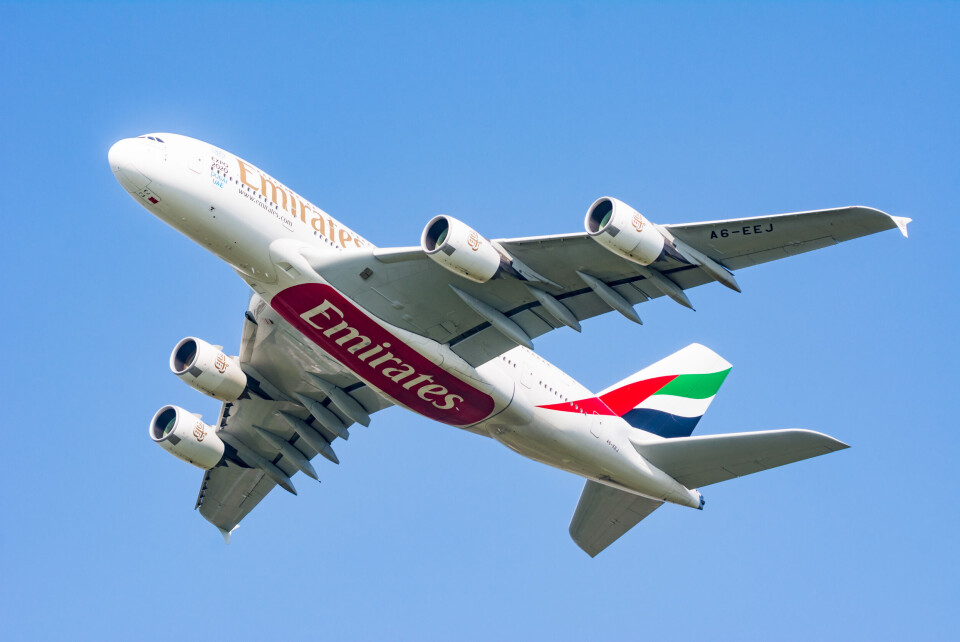-
Many Société Générale customers to be charged additional fees from April
There is some good news for international banking and instant transfers, however
-
Why gas prices in France are rising in April - and by how much
It comes after six consecutive monthly rises. Try these tips to reduce your bills
-
New notaire data suggests easing of Paris property crisis
Property experts have talked of ‘easing pressure’ and ‘breathing space’ after a four-year slump
French aircraft giant Airbus delivers last A380 superjumbo to Emirates
The plane was the 123rd delivery to Emirates and the 251st overall, as the French giant halts production on the once-pioneering jet

French aircraft giant Airbus has delivered its final A380 plane to Dubai flagship airline Emirates, marking the last, 251st, delivery of the once-pioneering double-decker commercial jet in total.
The final plane, the MSN 272, was delivered to Emirates in Hamburg, Germany.
It was the 123rd A380 delivered to the Dubai giant, which was Airbus’ biggest customer for the ‘superjumbo’ model. The plane can hold at least 500 passengers and has been certified safe to hold at least 800, depending on seat configuration.
The Emirates delivery was also the final A380 to be manufactured by Airbus overall. The model’s production line has now been closed, 14 years after the first jet was delivered in 2007, to Singapore Airlines.
Yet, Airbus was clear to state that the end of production does not mean the end of the A380. A statement said: “The A380 will continue to fly for at least 20 years.”
Airbus will continue to hold spare parts and a maintenance programme for existing customers to enable the planes to fly safely for decades to come.
A dedicated A380 team will also work on improving its operating costs and modernising its equipment and passenger cabin in the coming years.
‘The future of superjumbo’
Airbus, whose main HQ is in Toulouse, Occitanie, received 251 orders from 14 companies for the plane in total, including three test aircraft.
In the past 14 years, the jet has carried more than 300 million passengers, and completed 7.3 million hours of flight time. It currently serves more than 70 countries worldwide, with the majority of destinations in the Asia-Pacific region.
The future of superjumbo jets will depend partly on the fallout from the Covid-19 pandemic on international travel. Several airlines in Europe, including British Airways and Air France, removed their largest jets from use as a result of the pandemic, including the A380 and the Boeing 747.
US competitor Boeing is set to close production of its 747 in 2022.
However, the A380 manufacturing programme did not stop as a result of the pandemic. Airbus made the decision after launching its new A280neo plane, as well as suffering several major setbacks to the programme.
Airbus has not received any orders for the superjumbo since 2015, and the programme fell short of the ambitious targets it had set. The project’s budget reached €30billion, rather than the €10billion-€15billion initially planned; there were manufacturing and delivery delays and technical faults, and orders never reached predicted heights.
Yet, along with the Boeing 787 Dreamliner, the plane was hailed as a then-pioneering superjumbo jet and became increasingly popular for airlines such as Emirates, Singapore Airlines, and Qantas.
The difficulties suffered by Airbus as a result of the A380 struggles are credited with helping it to become more organised and aligned across shareholders, after it partnered in 2001 with the French company Aérospatiale Matra, German firm Dasa, Spanish company Casa, and British firm BAE Systems.
It has since gathered momentum for other projects, including the A350, which became a commercial success, and enabled the company to overtake US rival Boeing.
The Jean-Luc Lagardère hanger in Toulouse, where the A380 was assembled, has been refitted to accommodate the new A321 assembly line; while the 3,500 employees who worked on the production of the A380 in Europe, have been redeployed to other projects since 2019.
Related stories
Airbus unveils plans for zero-emission air travel by 2035
Airbus unveils designs for windowless passenger jet
Airbus France tests first fully automatic jet take-off
























